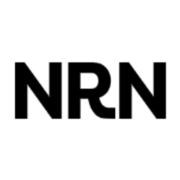Tariffs reshape trans-Pacific trade
By Edward Hardy
December 4, 2025
- Trans-Pacific airfreight has been sharply impacted by US tariffs on Chinese goods and the removal of the US$800 de minimis exemption, causing e-commerce volumes to fall by around 50–60 percent and prompting a shift from air to bulk sea freight, longer supply chains, and redeployment of freighters to alternative routes.
- The structural disruption extends across logistics, retail, manufacturing, and warehousing, with airlines adjusting capacity, fleet deployment, and route strategies while facing pricing pressures; major US airports have seen a 30 percent drop in freighter arrivals, highlighting operational and employment impacts.
- Recovery and adaptation depend on monitoring e-commerce trends, trade policy, nearshoring, and supply-chain diversification, with airlines leveraging data analytics, route optimisation, and partnerships to streamline operations, manage costs, and maintain profitability amid ongoing tariff and regulatory uncertainty.
With tariffs still in flux and the full effects expected to ripple through 2025 and into 2026, the dynamics of cargo movement—particularly airfreight—have shifted sharply across the trans-Pacific trade corridor. US tariffs on Chinese goods, combined with regulatory changes such as the elimination of the US$800 de minimis exemption, have disrupted e-commerce logistics, reduced airfreight volumes, and sent reverberations through global supply chains.
These are not merely short-term disruptions but structural shifts that are altering sourcing strategies, delivery timelines, and the economics of moving goods.
“Everything is still in flux with the tariffs put in place, those outstanding, specifically China, and the effects to be felt through the balance of the year and into 2026 and beyond,” says Joey Smith, Director at Cassel Salpeter & Co. “My responses are based on the best info and data at my disposal, both proprietary and sourced from other industry experts I find credible.”
The double blow
The trans-Pacific air cargo market has been particularly hard hit, with volumes falling around 60 percent. Smith explains that the sharp decline is linked not only to the tariffs themselves but also to the removal of the US$800 de minimis exemption, which previously allowed small, low-value shipments to bypass tariffs and standard customs processes.
“This exemption facilitated the direct-to-consumer, duty-free e-commerce model,” Smith notes. “Platforms like Alibaba, Shein and Temu shipped a high volume of low-cost goods. With the exemption gone, these shipments are now subject to tariffs and full customs procedures, increasing costs and logistical hurdles.” In May 2025 alone, e-commerce bookings dropped by roughly 50 percent.
Airlines have responded by redeploying freighters on alternative routes, particularly within Southeast Asia, while Chinese e-commerce giants have shifted toward bulk sea freight to US warehouses. “The platforms are elongating their supply chains by weeks, moving away from individual air shipments,” Smith says. “Further reshaping of sourcing and logistics tactics will become more prevalent as the new tariff landscape continues to evolve and play out.”
This confluence of tariff and regulatory pressures has broader consequences. Reduced airfreight volumes raise costs, slow delivery times, and encourage companies to rethink their logistics strategies—changes that ripple down through retail, manufacturing, warehousing, and transportation sectors.
Wider impact
The International Air Transport Association (IATA) has cut its air cargo growth forecast from 5.8 percent to near zero, reflecting more than just tariffs. According to Smith, the revision also considers macroeconomic uncertainties such as geopolitical tensions, slowing economic growth, inflation, and declining consumer confidence. “These factors impact consumer spending and, by extension, the need for airfreight services, which were delivering record metrics in 2024,” he says.
Compounding the issue is the elimination of exemptions under the 1980 Civil Aircraft Agreement. “This termination allows countries to impose tariffs on civil aircraft, engines, flight simulators, and related parts and components,” Smith explains. “The increased costs affect the entire supply chain—from aluminium, steel, and titanium production to aircraft pricing and spare parts—impacting airlines and manufacturers worldwide.”
At major US airports, the effects are visible. Smith highlights a reported 30 percent drop in trans-Pacific freighter arrivals at the top 18 airports, particularly on the West Coast, including LAX, SFO, ORD, JFK, and LGA. “This is more than a numbers issue. Reduced activity can lead to operational consequences, job losses, or slower hiring in logistics, trucking, warehousing, and last-mile delivery sectors,” he warns.
Shifts and strategic adaptation
The decline in US air cargo volumes—down 25 percent year-on-year through May 2025—is striking compared to other major markets. North America saw the largest contraction, while Asia-Pacific, Europe, and Latin America recorded modest growth. The Asia-North America corridor, long a backbone of e-commerce shipments, has borne the brunt of the downturn.
“China’s void is being partially absorbed by other Asian markets and Europe/Middle East routes,” Smith says. “But the sudden drop in e-commerce shipments has forced cargo airlines to rethink their business models, from capacity adjustments and fleet redeployment to route diversification and capitalising on nearshoring trends.”
Chinese e-commerce platforms have increasingly turned to slower, cheaper sea freight, reshaping the economics of airfreight. Airlines are exploring partnerships, niche markets, and consolidated shipments to optimise cargo space and reduce unit costs. “Real-time tracking, route optimisation, and data analytics are being leveraged more heavily to streamline operations, minimise delays, and identify cost-saving opportunities,” Smith observes.
Financially, the shifts have complex implications. Passenger carriers with belly cargo can benefit, as cargo can account for 5 percent of total revenue yet contribute up to 30 percent of a route’s profitability. However, high-demand airfreight routes face intense competition and pricing pressures, underscoring the delicate balance between cargo and passenger operations.
Signals of recovery
Keeping a close eye on both market and policy developments, Smith advises focusing on e-commerce growth, shifts in consumer habits, industrial production, PMIs, fuel price fluctuations, geopolitical tensions, and nearshoring trends. Policy factors include trade agreements, customs regulations, Open Sky agreements, and sustainability initiatives such as sustainable aviation fuels (SAF).
In the near term, the combination of tariffs, regulatory changes, and shifting logistics strategies is likely to continue shaping the trans-Pacific trade corridor.
“Monitoring these developments helps assess whether the air cargo market is moving toward recovery or facing further disruption,” Smith concluded. “The location of manufacturing hubs, diversification of supply chains, and regional trade flows will significantly influence airfreight routes and pricing strategies.”
Click here to read the full article.











